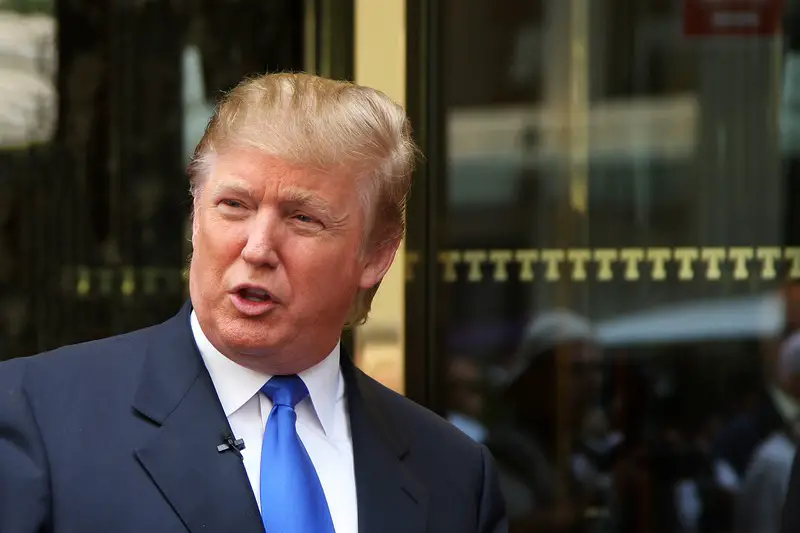Following the death of Jimmy Carter, the 39th President of the United States, on December 29, 2024, President-elect Donald Trump, who had been a vocal critic of Carter’s presidency during his 2024 campaign, released unexpected statements of admiration. This marked a notable change in his public position on Carter.
On his Truth Social platform, Trump acknowledged Carter’s contributions, stating, “We all owe him a debt of gratitude” for his efforts to “improve the lives of all Americans.”
This conciliatory statement is a sharp contrast to Trump’s prior comments about Carter. On Carter’s 100th birthday in October 2024, Trump referred to him as “the forgotten president,” insinuating that Biden’s presidency made Carter’s term appear successful.
Tensions between the two presidents were evident from early on. In 2019, at a Carter Center event in Leesburg, Virginia, Carter stated his belief that Russian interference had played a role in Trump’s 2016 election win. “There’s no doubt that the Russians did interfere in the election,” Carter said. “And I think the interference, although not yet quantified, if fully investigated would show that Trump didn’t actually win the election in 2016.”
Trump was quick to respond at a G-20 summit press conference in Japan, where he labeled Carter as a “nice man” but a “terrible president” and “the forgotten president.” This criticism continued when Carter later suggested at a September 2019 Carter Center town hall in Atlanta, Georgia, that a second Trump term would be “a disaster,” also voicing concerns about Trump’s age.
In his remarks after Carter’s passing, Trump acknowledged their disagreements while showing respect: “While I strongly disagreed with him philosophically and politically, I realized that he truly loved and respected our Country and all it stands for.”
Trump further noted that Carter had a significant impact, “far more than most Presidents, after he left the Oval Office,” referencing Carter’s humanitarian work through the Carter Center and his peace initiatives that landed him the 2002 Nobel Peace Prize.
President Jimmy Carter won the Nobel Peace Prize in 2002 for his decades-long dedication to peace, democracy, and human rights. The Nobel Committee recognized his efforts in conflict resolution, global development, and promoting social justice. A hallmark of his career was the 1978 Camp David Accords, where he brokered a historic peace agreement between Egypt and Israel, a cornerstone achievement in Middle Eastern diplomacy.
After his presidency, Carter continued his advocacy through The Carter Center, founded in 1982. The center has tackled global issues like disease eradication, election monitoring, and advancing health and agriculture in developing countries. Carter’s ability to mediate international disputes and champion human rights without resorting to violence exemplified his enduring commitment to creating a more just and peaceful world.
Trump’s change in tone elicited mixed reactions from his supporters. Some MAGA loyalists critiqued his sympathetic tone, particularly concerning Carter’s pardon of Vietnam War draft dodgers. Several influential supporters used social media to remind their followers of Carter’s economic policies, which they claimed led to substantial inflation and interest rate hikes.
Donald and Melania Trump offered warm condolences, stating they were “thinking warmly of the Carter Family” and acknowledging the “enormous responsibility of leading the Greatest Nation in History.”
Other former presidents and world leaders also responded to Carter’s death. President Biden, the first U.S. senator to endorse Carter’s 1976 presidential campaign, ordered a state funeral in Washington, D.C., aligning with the beginning of Trump’s second term. Biden, who maintained a close relationship with Carter throughout his life, visited him shortly after taking office in 2021.
Trump conceded that Carter’s post-presidency work, including his near eradication of Guinea worm disease and his promotion of global democracy through election monitoring, set a new benchmark for the humanitarian work of former presidents.
Former President Jimmy Carter’s state funeral is scheduled for January 9, 2025, at the Washington National Cathedral in Washington, D.C. President Joe Biden has declared this date a National Day of Mourning, with federal agencies and departments closed in honor of the 39th president.
Prior to the funeral, Carter’s body will lie in state in the U.S. Capitol Rotunda from January 7 to January 9, allowing the public to pay their respects. Following the Washington ceremonies, a private family service and interment will take place in Plains, Georgia, where Carter will be buried beside his late wife, Rosalynn Carter.
In recognition of Carter’s passing, President Biden has ordered all U.S. flags to be flown at half-staff for 30 days, beginning December 29, 2024.











